The Maltese MEPs all seem to believe that European President Jean-Claude Juncker came across as a strong supporter of a humanitarian response to migration in yesterday’s State of the Union speech.
This newsroom asked MEPs to comment on his speech, whether the European Council would be willing, in their opinion, to share another 120,000 refugees from Italy, Hungary and Greece, and also on the warning shot fired by President Juncker at Russia, warning then that Europe will protect the Eastern European member states.

Alfred Sant
PL MEP Alfred Sant believes that the Commission President’s speech lacked plans as to how the EU can implement the desired actions.
He explained that if the EU is going down the humanitarian road, then the EU must look at the implication next year and the year after and not only just what is being done presently, both in financial and logistical terms needed to take care of the migrants. “The issue is that this is not being addressed. There needs to be some form of long-term plan to address the resources needed. Simply for there to be fight each time on how they will be relocated, or the possibility of receiving a fine for not taking in migrants - it's playing with sticks”.
“It was a rambling speech, not as focused as his speeches usually are. It could also have been more compact, however the points came through. His speech concentrated heavily on migration. He took the Franco-German line and in fairness that was his line from the get-go, where the humanitarian side takes priority. He was specific with regards to what needs to be done and spoke of the importance regarding legal migration and the systems to manage this”.
“He was also clear on compulsory quotas for distribution, however that is really up to the member states not him. The most he can do is exhort moral pressure through the proposals he is making. The problem always remains, that the resources needed for these policies are never mentioned and in this regard the light got a bit dim”.

Turning to the electorate, he explained that nowhere is the electorate in the right frame of mind when it comes to migration. “I was speaking with a UK Labour MEP yesterday and she told me how their active members agree with them on migration in terms of humanitarian aid, however the voters do not agree with them at all. In terms of Malta, I think we can absorb those quotas given to us and more, but the problem is the precedent. What is happening through Syria could possibly happen through Libya. God forbid we see a breakup of the Libyan state but ISIS are active there”.
As for other points raised by Juncker, such as Greece and Ukraine and the financial estimates, ”we basically had a repetition of ideas he has already said”.
Turning to Juncker’s warning to Russia, he believes it was more of a symbolic warning. “But what can he do? Someone heckled him during his speech asking, “Where’s your army?”. He raised it as a number of Baltic states are worried about that but at the end of the day it was more of a symbolic statement. He said that the current embargoes on Russia are causing an strain on EU farmers”.
Dr Sant wished President Juncker spoke more on Greece. “How is it that, after all that has been done, a red light isn’t being raised when an agreement is being speedily implemented, where the Greek government at the time made clear it was a bad agreement and was signed under duress, where the IMF themselves said it wasn’t good? It’s a perilous thing. We have embarked on another ‘bailout’ that both from the technical side as well as the political side of those signing were forced to sign. This sounds very dangerous in the context of the EU. If the agreement fails, which I think will eventually happen, what will the aftermath be? I expected him to speak about it however he held back”.

Miriam Dalli
PL MEP Miriam Dalli said the speech was better than expected. “I thought he would mainly focus on economic issues, primarily on Greece and the Economic and Monetary Union. However I was happy that he focused on the social aspect. A large part of his discourse was on the refugee crisis. The way he spoke of the crisis and the initiatives and proposals he announced made the speech very interesting.
“On climate change, he said – ‘we must seriously address climate change as when tomorrow comes, the immigrants arriving on our doorstep will be climate migrants. If we don’t tackle this situation now, we will be creating problems for ourselves in the coming years’. He is trying to tackle the problem at source. If things don’t change, there will be some countries already drying up become worse. This would mean people will no longer be able to live there”.
She spoke of the need to work on long-term measures to tackle this. Turning to the EU 2020 targets for Malta, she explained that those national targets are there for a country to do their utmost to reach those targets. “Really and truly the targets are not only there as a number, but for us to reach that number”. She explained that reaching the target is also important for peoples’ health.
“As for Malta, there are targets we can reach and others we are far away. We must make a push to try and reach those we are still far away from. One such example is renewable energy. There are Malta’s limitations and should keep in mind that there are some renewable energies which are very expensive and others, like solar energy, are cheaper than before. Wind farms, for example, are extremely expensive. If there is need for more PV panels then we must push to use those”.
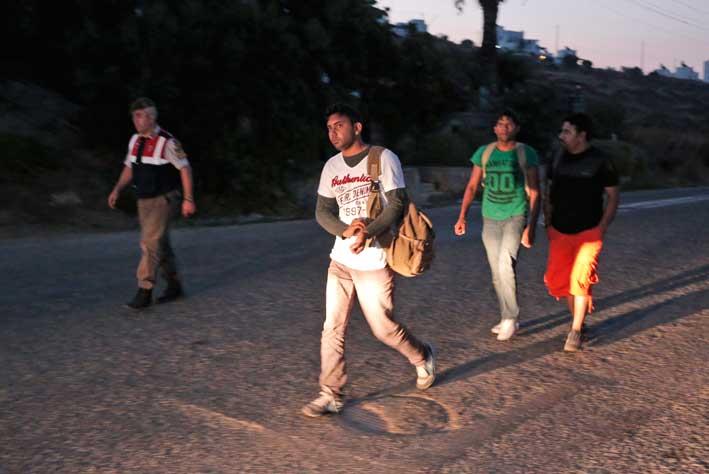
Turning to the 120,000 additional refugees proposed to be relocated, Dr Dalli believes the million dollar question to be ‘will the EU states leaders agree on the relocation?’ She explained that EU states agreed on a voluntary mechanism not an obligatory one, adding that they struggled to agree on 40,000 let alone 120,000.
“What I hope is that we won’t see is states using opt-outs, those saying they want this and that etc - where all we have discussed becomes watered down”.
Those EU leaders who are against taking in refugees are those who have never faced the crisis, she explained. “Countries like Malta and Greece are not against such mechanisms, but its mainly Eastern countries that oppose. “They have not really felt this reality”.
She admits that the loudest voices are those with an anti-migrant sentiment, however said that the migrants arriving make up 0.11% of the whole EU population, while 25% of Lebanon’s population is made up of refugees. “A comment I saw recently was – ‘why don’t they go to neighbouring countries?’. They do go to safe neighbouring countries, and Lebanon and Turkey are examples who are taking in a large amount of refugees”.
Turning to President Juncker’s warning shot, to Russia, she said that at this point he is trying to use as much diplomacy as possible with Russia. “Russia is an important EU partner however the Union has always been against any kind of oppression, violence or border infringements”. She expressed her expectation that security would have received a more prominent position in his speech. She also expected the EC President to better describe the way forward.

Marlene Mizzi
“In times when the EU is facing migration and economic crises and wars in its neighbourhood, I was glad to see that in the much anticipated State of the Union speech, Commission President Jean-Claude Juncker pushed as a first priority the refugee crisis,” PL MEP Marlene Mizzi said.
“It is regrettable that the refugee situation had to escalate to such a global extent for the European Commission to demonstrate its strong commitment and determination for the preservation of the traditional values of solidarity on which the European Union is built. The Commissioner also spelt it out loud and clear that as long as there is a war in Syria and terror in Libya, the refugee crisis will not simply go away. I am literally out of breath - repeating that unless we bring stability and peace and Libya and Syria the refugee flows will continue. Libya should have been one of our top priorities a long time ago, but instead member states and the international community preferred to ignore the situation until people started arriving in droves on their borders”.
“I also agree with Juncker and I am happy that he said it out loud, that EU is ‘not in a good place’ and that it needed to move beyond ‘business as usual’ to address the daunting political challenges facing the bloc. I cannot agree more that now it is not the time to go ahead willy-nilly, neither is the time for business as usual. It's time for bold concrete action”.

Turning to the proposed relocation of an extra 120,000 refugees, she explained that member states are deeply divided over how to cope with the influx of refugees and asylum seekers and whether they should or should not open their borders to people in need. “Some member states are playing the blame game; others think that as long as asylum seekers have not (yet) reached their borders, then it´s not their problem. But recent events have shown us that borders can no longer stop people fleeing from war and persecution. In their search for safer grounds these people will risk their lives, cross the deadly waters of the Mediterranean and walk hundreds of kilometres to reach countries where they will feel safe and welcome.
"Meanwhile what do we do with all those people who are already in Europe...pretend that they don't exist? We are talking about human beings and not numbers. We have the moral obligation to help people fleeing wars, prosecution, but at the same time it is clear that countries at the frontiers are not able to cope with the problem on their own and that the current common efforts are inefficient and disorganised. Having said that, however, I am strongly convinced that any further increase should be agreed only, if there is a fair distribution key and that small countries like Malta do not shoulder disproportionate share of the burden.”.
She explained that the EU is clearly dealing with an unprecedented humanitarian emergency, “which raises the question about appropriate measures of response at European and national level. The member states, on the other hand, are burdened with responsibilities, which they cannot shoulder on their own. Today it is Italy, Greece and Hungary that need help, but tomorrow it can easily be Malta. Wouldn't we want other member states to show solidarity with us in the same situation? As president Juncker said – ‘we can build walls, we can build fences. But imagine for a second it were you, your child in your arms, the world you knew torn apart around you. There is no price you would not pay, there is no wall you would not climb, no sea you would not sail, no border you would not cross’. Having said so we must ensure that Malta is not burdened more than it can carry and that the EU cannot treat Malta as it treats large countries with infinite territories. We are a small overpopulated island and this should be given paramount importance when including Malta with the receiving countries”.
As for Ukraine, the MEP explained that it is no longer the top story in the news, but this doesn't mean that situation is stable. “If it is Syria and Libya people are fleeing from today, it could just as easily be Ukraine tomorrow, as the president of the Commission said today, Europe has made mistakes in the past, and it should avoid repeating them. I agree that in a globalised world spirit of cooperation between the EU and Russia is needed, but this should not happen at any price. Europe could play a major role on the international scene, dictating standards and policies, but only if it shows strength and unity to the world”.
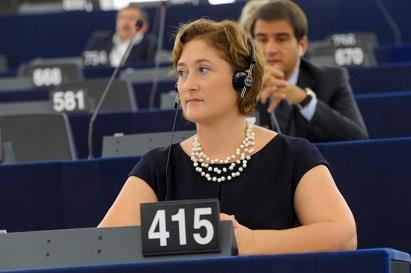
Therese Commodini Cachia
PN MEP Therese Comodini Cachia believes that some member states do not understand the definition of solidarity.
“We had seen some member states’ reaction to the relocation of 40,000. I think some members don’t understand that there is no opt out clause to solidarity. Solidarity does not mean having a country that does not take in refugees, but rather means that each and every one of us takes in our share. The taking up of a mere 120,000 refugees must be compulsory and I doubt the upcoming Council meeting will not be met with more political rhetoric”.
She mentioned that this is the time to stand up and be united in solidarity. “Its going to be difficult for some Council members to go back home and say they accepted compulsory burden sharing, however they made it difficult for themselves as for the past few months they have used political rhetoric which has spurred and instilled a sense of fear of foreigners and being overwhelmed by the crisis, rather than facing the crisis”.
She explained that misinformation on migration is not just present on the street, but also within the EU institution. “I have had to correct, on occasion, misinformation put forth by fellow MEPs, such as statements like ‘ x number of people seeking refugee status are terrorists’. This language which has infiltrated a number of offices so I believe the correct information needs to be given”. Its not just about this however, she believes it’s also about giving the opportunity for refugees to live with Europeans and vice-versa.
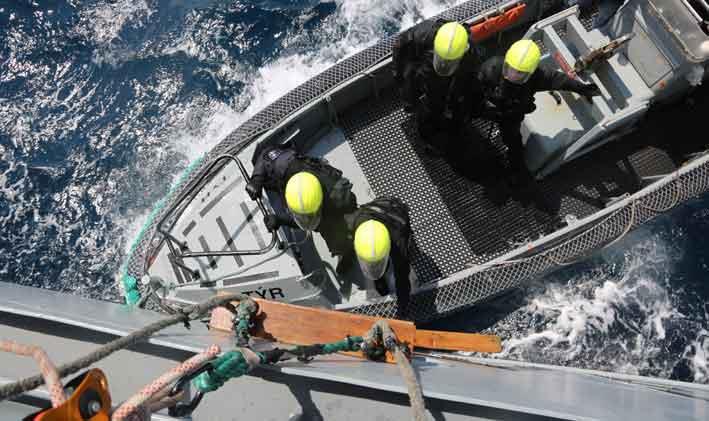
Turning to the proposal that would see refugees work while their applications are still being processed, she explained that such a proposal could prevent slum areas, and would avoid seeing migrants living on the street in poverty.
The MEP believes that a rise in solidarity could be seen by the people, which was represented through the EC President’s speech.
“When he spoke on Greece he was very clear in his statement, indicating that though the Commission had to be firm with Greece, the Commission wants Greece to remain a member state”
One particular topic she wished the President addressed was the Digital Agenda. The MEP believes he should have spoken about what the Digital Agenda would bring for ordinary people. “This agenda deals with investment, but also with job opportunities, giving youths a push to the future by granting them the necessary skills and opportunities for start-ups”.
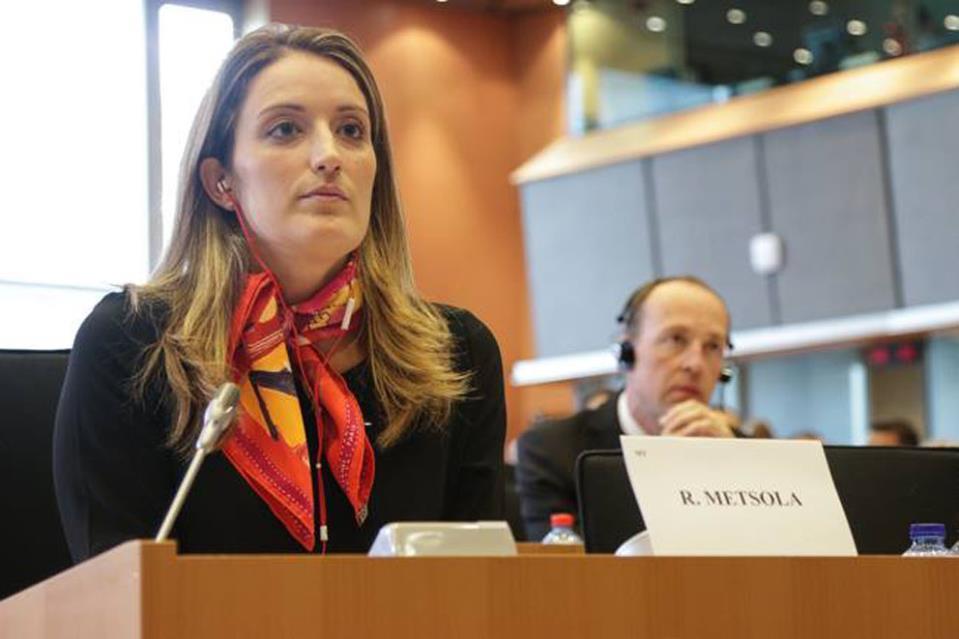
Roberta Metsola
PN MEP Roberta Metsola is worried that without political will, mandatory burden sharing will not be implemented.
“He (Juncker) made it clear that he will not be weak in the face of member states and will do his utmost for a fair sharing among all member states, not excluding anyone. Yesterday gave me hope that finally we are moving towards a recognition of what our responsibility as a Union has to be”.
Turning to whether or not there will be agreement on the relocation of 120,000 refugees, Dr Metsola explained that since the last European Council meeting, “a summer of unprecedented arrivals has been seen. We have seen leaders of member states come forward and say ‘we want to help’. If other member states don’t realise that there is a rallying cry from their counterparts and civil society to help those fleeing persecution and war, then we will once again fail those people. I think the tide has turned more towards a recognition that something must be done”.
Turning to the warning shot aimed at Russia, she believes that Juncker told member states reluctant to help in the migrant crisis that someday it could be them facing the influx. “My interpretation is that he is telling Poland and Slovakia that Ukrainians will flee into their countries if the situation persists”.
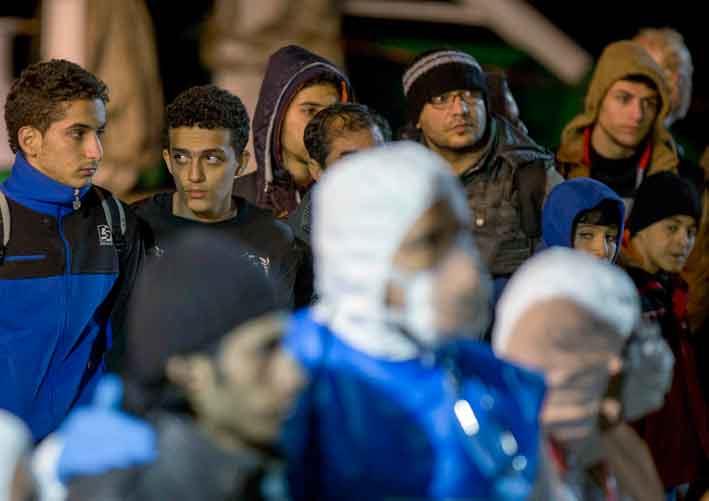
As for Juncker’s statement regarding Middle Eastern countries taking in more than the EU as a percentage of their population, she said that the EU must look at “what we can do to help Jordan, Lebanon and Turkey with the burden they are facing. The UK Prime Minister said that he will directly bring in refugees who have been in Turkish camps for a number of years, even though he announced that he does not agree with Juncker’s plan. We must also do everything we can to find a diplomatic solution in Libya and eradicate terrorist organisations”.
“The EU needs to partner with states like Jordan in the fight against Islamic State and eradicate terror networks”. Asked if she was talking about boots on the ground, she said no and that any such decision would require a UN decision and she would not pre-empt that. “I was talking about a diplomatic offensive”.
The EPP, S&D, ALDE and the Green Party will present a co-signed resolution in Parliament today, urging Prime Ministers to take action through the continued guarantee of freedom of movement, effective border management but at the same time understanding that we have a responsibility to grant protection. “The main message is – ‘what can we do to prevent these people from having no option but to come into our countries through a smuggling network, what can we do to improve the attraction of migrants whose skills we need in the EU, what can we do for effective return for those persons not eligible for protection?’”
She explained that the EU will be able to impose the obligation of third countries to honour their re-admission agreements through united decisions of safe countries of origin.
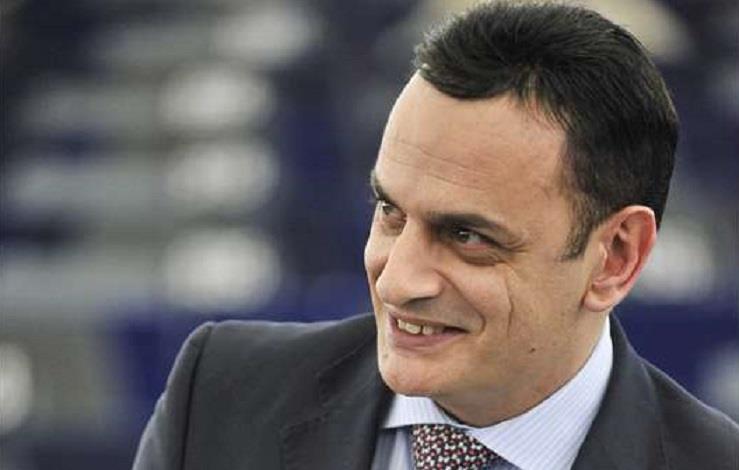
David Casa
PN MP David Casa said that the speech was both strong and emotional.
“Even though we are speaking about a small number, 160,000, we can expect more than that coming into Europe. I believe Malta’s contribution will be vital but I am not happy that my government has not yet convinced the Commission that other countries should also be helping us”.
He explained that taking a total of 160,000 refugees is not a populist decision. He explained that sentiment has changed since migrants began using other routes into Europe, resulting in the realisation that “this is a European problem… a world problem. I am not excluding the USA or rich Arab countries from this and I believe it is a global problem, where everyone should be involved in helping”.
He spoke of Chancellor Angela Merkel and how she dealt with the migrant situation, applauding her courage. “When Germany has the courage, a lot of others will follow”. He explained that there has been a majority in Parliament for accepting migrants, however the problem has lied with the European Council. “I think this time we are close to finding a solution”.
“Yes the numbers in Greece, Hungary and Italy are far greater, but when it comes to the area it should also include helping small countries not to have too many refugees. We need to give them the best possible stay in Malta and that is why we should not have a huge number of migrants on our island as we cannot do the impossible. I think government should have defended this aspect in a different way than the Prime Minister actually did”.
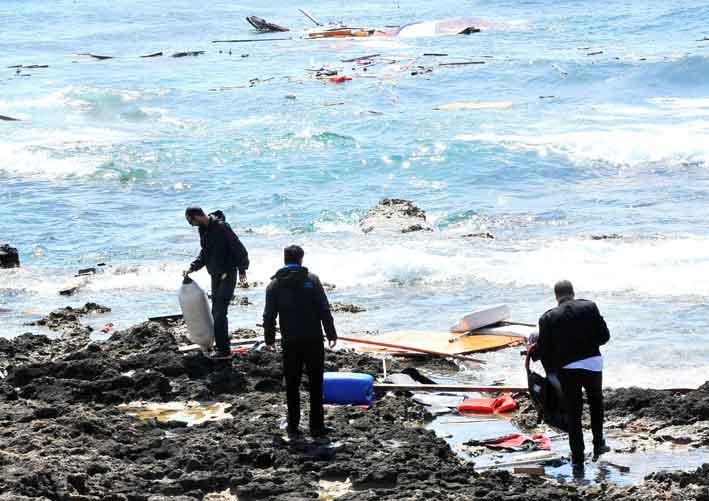
“We have seen a change in the number of boats coming to Malta, something must have happened. Some people believe there is a secret deal with Italy. I’m not sure about that but it is strange how all these boats come around our island while not too many land. If there is an agreement we should be transparent and the people should know what is happening. We should know why people are not coming here and if they are not we must do our part and help in this human tragedy”.
He mentioned that the call for the revision of Dublin 2, made by Juncker, was proposed by Simon Busuttil and himself a long time ago, and which he, along with Roberta Metsola, have continued pushing for.
Mr Casa believes that the EU will finally put solidarity to work adding that voluntary burden sharing did not work. “finally it looks as though there is a commitment. We obviously need to see the Council’s reaction which might be very different to the reaction given by MEPs from the different political groups”.
Turning to Juncker’s warning shot, Mr Casa believed that the President came across strongly when declaring that the EU would defend the Baltic states. “Of course we have to defend them not only because they are independent states, but they are part of Europe. He was very strong”.